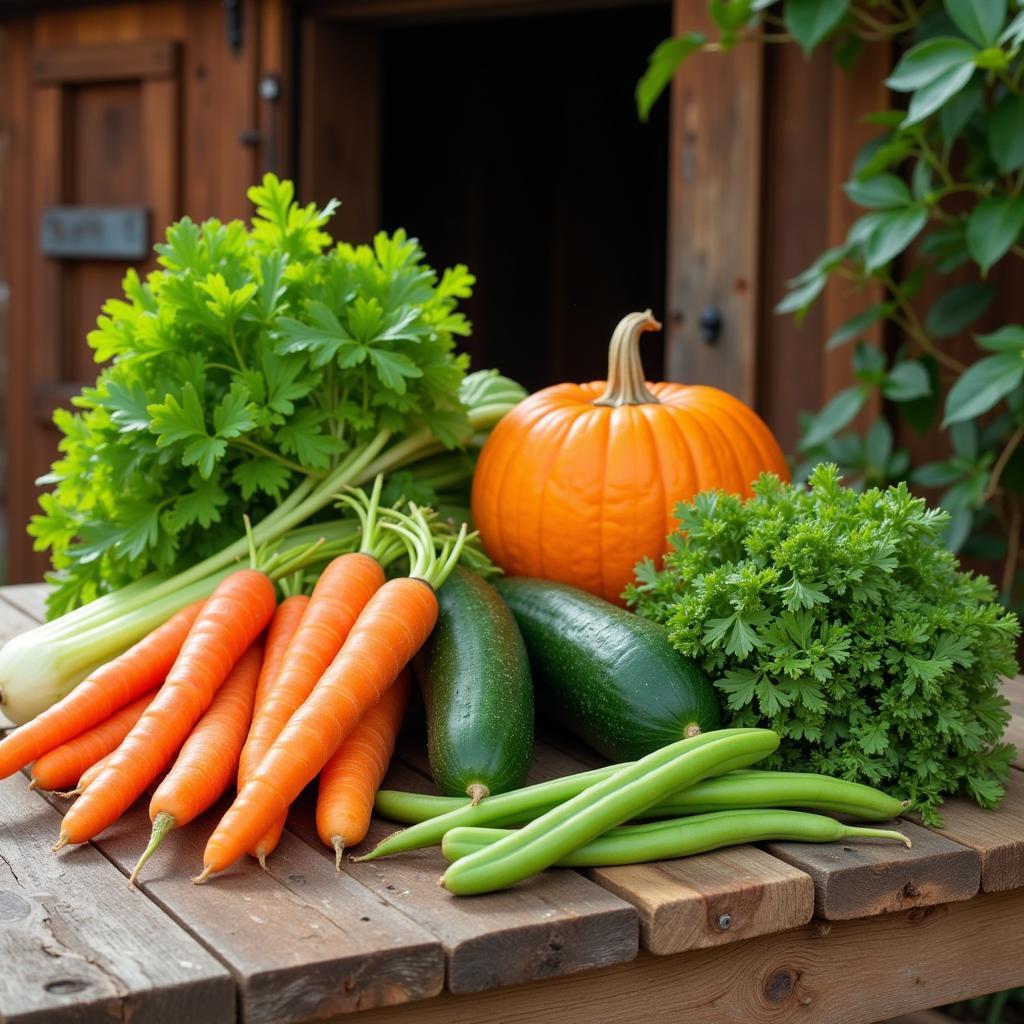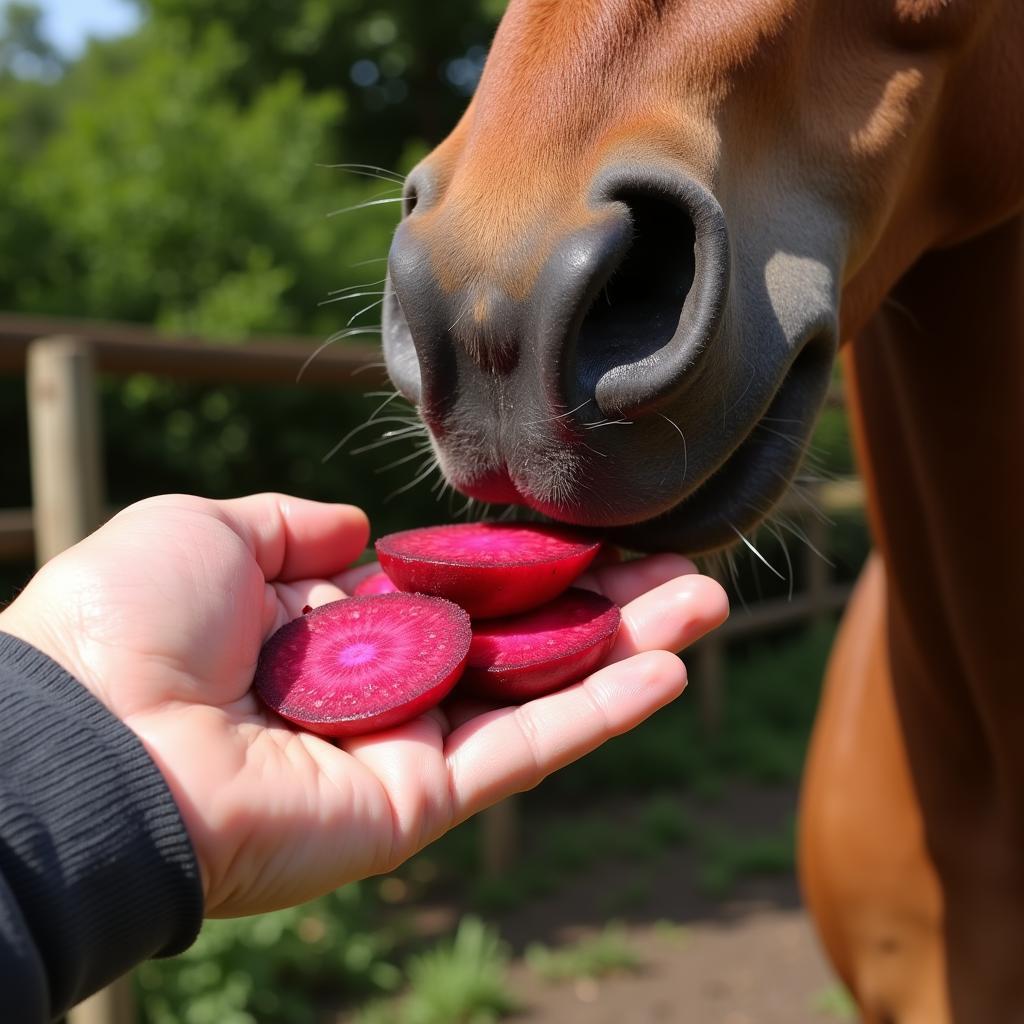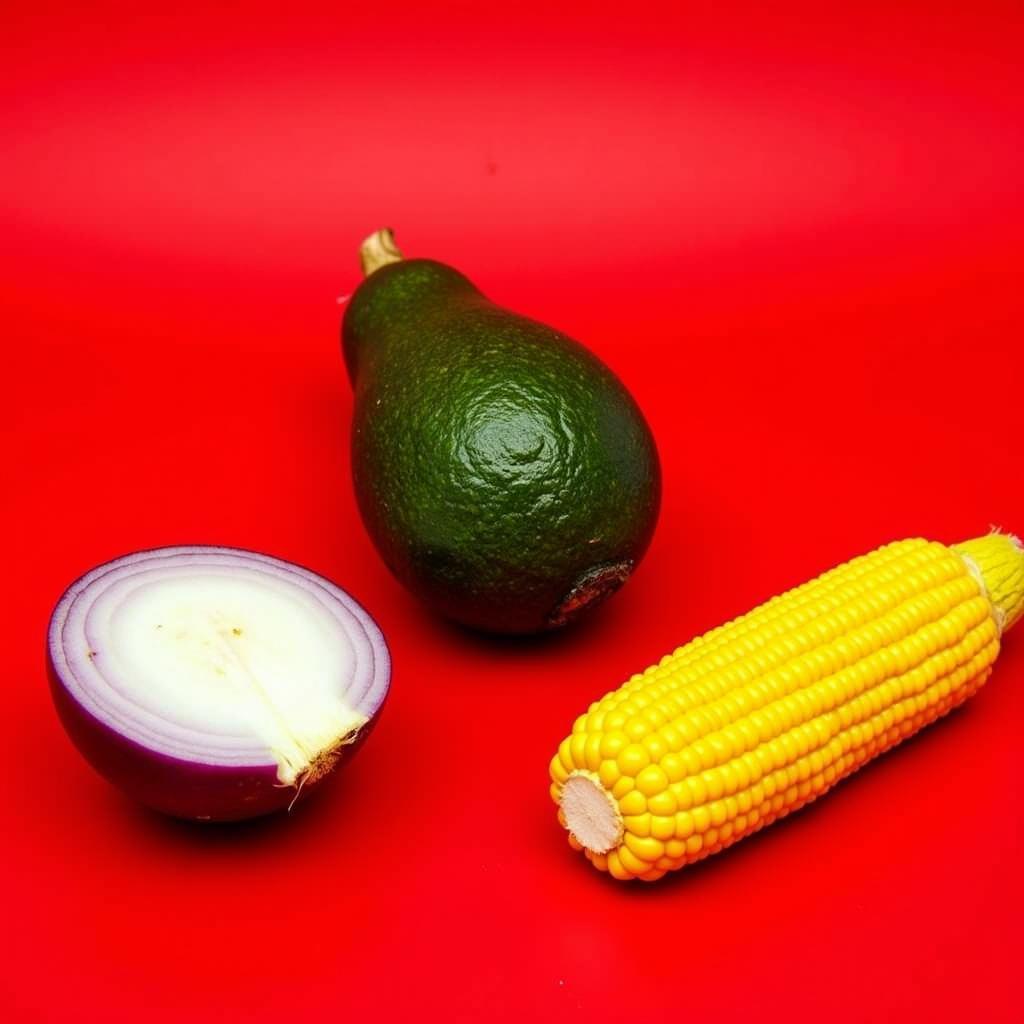Horses, with their soulful eyes and gentle nature, are known for their love of grazing. As horse owners, it’s our responsibility to ensure they receive a balanced diet that includes more than just hay and grain. This begs the question: what about Horse Vegetables? What vegetables can horses eat, and what should be avoided?
Safe and Healthy Vegetables for Your Equine Friend
Just like us, horses benefit from a variety of fruits and vegetables in their diet. Here’s a list of horse-friendly vegetables that can add flavor and nutrition to their meals:
- Carrots: Rich in Vitamin A and a favorite treat for many horses.
- Celery: A good source of fiber and can be hydrating, especially during warmer months.
- Cucumbers: Low in calories and can help cool down an overheated horse.
- Green beans: Offer a good source of vitamins and minerals.
- Pumpkin: A delicious and nutritious treat, especially when fed cooked and mashed.
 Safe Vegetables for Horses
Safe Vegetables for Horses
Remember to always introduce new foods gradually to your horse’s diet, and observe for any signs of digestive upset.
Vegetables to Feed with Caution
While many vegetables offer health benefits for horses, some should be fed sparingly and with caution:
- Beets: While a good source of nutrients, beets should be fed in moderation due to their high sugar content. Molasses-free beet pulp can be a beneficial addition to a horse’s diet, especially for those needing to gain weight or those with dental issues.
- Potatoes: Cooked, plain potatoes can be fed in small amounts, but avoid raw potatoes and potato plants, as they contain solanine, which can be toxic to horses.
 Feeding Beets to Horses
Feeding Beets to Horses
Vegetables to Avoid Entirely
Certain vegetables pose a choking hazard or contain toxins that can be harmful to horses:
- Onions: Onions, along with garlic, chives, and leeks, are part of the allium family and are toxic to horses, potentially causing anemia.
- Avocados: All parts of the avocado plant, including the fruit, pit, and leaves, contain persin, a toxin that can be harmful to horses.
- Corncobs: While the kernels of corn are safe, corncobs pose a significant choking hazard.
 Vegetables Toxic to Horses
Vegetables Toxic to Horses
Feeding Your Horse Vegetables: Tips and Best Practices
- Wash thoroughly: Always wash all fruits and vegetables before feeding them to your horse to remove any dirt, pesticides, or residues.
- Cut into manageable pieces: Chop vegetables into bite-sized pieces to prevent choking, especially for horses that tend to bolt their food.
- Introduce gradually: As with any new food, introduce vegetables slowly into your horse’s diet to monitor for any adverse reactions.
- Consult your veterinarian: If you have any concerns about your horse’s diet or are considering adding new foods, it’s always best to consult with your veterinarian. They can advise you on the best dietary choices for your horse’s specific needs.
Adding Flavor and Enrichment
Remember, just like us, horses appreciate variety in their diets. Offering a selection of safe and healthy vegetables can make mealtime more enjoyable, provide essential nutrients, and even help prevent boredom. However, it’s crucial to remember that hay should always make up the majority of your horse’s diet, followed by grain and supplements as needed.
Do you have a favorite horse-safe vegetable recipe? Share your tips and experiences in the comments below!
FAQs about Horses and Vegetables
Q: Can horses eat tomatoes?
A: While the ripened fruit of the tomato is generally considered safe in small quantities, the leaves and stems of the tomato plant contain solanine and should be avoided.
Q: Can horses eat broccoli?
A: Yes, horses can eat broccoli in moderation. It’s a good source of vitamins and minerals.
Q: How many vegetables can I feed my horse?
A: Vegetables should be considered treats and fed in moderation. A few cups per day is sufficient.
Q: Can vegetables cause colic in horses?
A: Sudden changes in diet, including the introduction of large quantities of vegetables, can potentially lead to colic in horses. It’s important to introduce new foods gradually.
Q: Can horses eat raw vegetables?
A: Most horses can eat raw vegetables, but some, like potatoes, should only be fed cooked.
For more information on horse nutrition and care, be sure to check out our articles on Trojan Horse Fat Burner, Purina Amplify High-Fat Horse Supplement, and Is Coconut Oil Good for Horses?.
Need More Help?
Do you have other questions about what you can and can’t feed your horse? We’re here to help! Contact us at Phone Number: 0772127271, Email: [email protected], or visit us at QGM2+WX2, Vị Trung, Vị Thuỷ, Hậu Giang, Việt Nam. Our dedicated customer service team is available 24/7 to assist you.